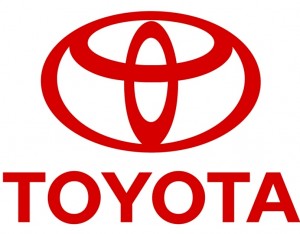Toyota may soon become the next major automaker to open an assembly plant in Mexico, following other global manufacturers including BMW, Kia and Mercedes-Benz, all of whom announced plans to set up operations “South of the border” in recent months.
Toyota, which already operates an extensive manufacturing network in the U.S. and Canada, would not be a stranger to Mexico. It already operates a so-called “kit car” plant in Baja, California an hour south of Tijuana, that assembles about 50,000 small pickup trucks annually. But unlike other global manufacturers, Toyota has not built a full-scale assembly plant in Mexico, which has seen automotive-oriented investments boom in recent years.
Mexico is already the world’s sixth-largest auto producing nation, with manufacturers including Detroit’s Big Three, Volkswagen and Nissan, firmly entrenched. Audi is in the midst of readying a plant near Puebla that will become the first to build luxury cars. Honda joined the procession in February, and, just since June, Kia Motor Corp. BMW AG and Daimler AG have announced plans for Mexican operations.
The latter would come in the form of a joint venture, Daimler’s Mercedes-Benz unit opening up a plant alongside an existing Nissan facility in Aguascalientes. That new facility, set to open in 2016, will build a line of new small cars for both Mercedes and Nissan’s luxury arm, Infiniti.
(Toyota aims to “redefine” urban utility with U2 concept. Click Here for a closer look.)
Toyota executives met with Mexican federal officials this week, according to the Bloomberg News service, which cited sources “with direct knowledge of the matter.” Toyota is looking at several different sites across Mexico, Bloomberg said.
Toyota anticipates significant increases in demand in the North American market, while it also is pushing for further growth in Latin America. But its existing production base in the U.S. and Canada is rapidly reaching maximum capacity. Toyota could add a third shift at its truck plant in San Antonio, Texas and is actively looking for ways to expand production of the RAV4, according to a Toyota official familiar with the company’s U.S. operations. But it may opt to add another plant in Mexico instead.
A new plant would also help in its ongoing effort to localize production, a move that gained urgency after the devastating earthquake in northern Japan, a few years back, all but shut down production in that country for several months.
(Toyota taking advanced crash-avoidance technology mainstream. Click Here for the story.)
Toyota still imports between 30% and 35% of the Toyota, Scion and Lexus vehicles it sells in the U.S. from Japan and will begin importing the Yaris models from a plant in France. Imports from Japan have become increasingly expensive because of the appreciation in the value of the yen and the rising cost of transporting vehicles across the Pacific.
A plant in Mexico also would give Toyota an opportunity to export additional vehicles to countries in Central and South America, which will become major battlegrounds for global car companies over the next decade, according to the Boston Consulting Group.
(Mercedes expanding plant in Alabama as luxury car demand booms. Click Herefor the latest.)
Manufacturers have been drawn to Mexico, in part, for low labor costs. But industry leaders also point to another advantage — favorable trade accords. Mexico has more free trade agreements than any other nation except Israel, which makes it all the more advantageous to use as a global manufacturing hub.
(Paul A. Eisenstein contributed to this report.)

